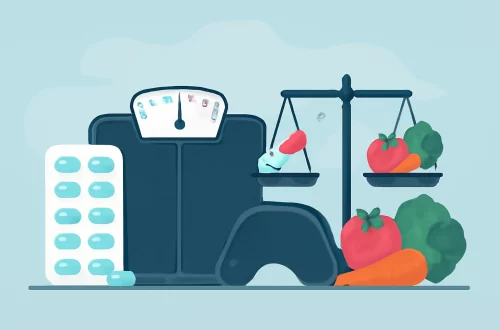
Understanding Sex After Abortion: What You Need to Know
Understanding the complexities of sexual health following an abortion is crucial for those who have undergone the procedure. Abortion can be a deeply personal and emotional experience, and navigating the aftermath requires both physical and emotional considerations. The transition back to sexual activity can be influenced by various factors, including physical recovery, emotional readiness, and societal perceptions.
Many individuals may feel anxious or uncertain about resuming sexual intimacy after an abortion. This apprehension can stem from a variety of sources, including concerns about physical health, potential emotional fallout, and the stigma that can accompany abortion experiences. Each person’s journey is unique, and understanding the nuances involved can help alleviate some of these concerns.
Physical recovery from an abortion typically involves a period of healing, during which individuals may experience changes in their bodies and emotions. It is essential to listen to one’s body and engage in open communication with partners about feelings and boundaries. Recognizing that there is no “normal” timeline for resuming sexual activity can help individuals navigate this sensitive period more comfortably.
Ultimately, prioritizing one’s health and well-being is essential, as is fostering a supportive environment for open discussions about sexual health post-abortion. By providing accurate information and addressing common concerns, individuals can make informed decisions that align with their personal circumstances.
Physical Recovery and Its Impact on Sexual Health
Physical recovery after an abortion is a critical aspect that can significantly impact decisions regarding sexual activity. The body undergoes various changes during the procedure, and it is essential to allow adequate time for healing. This period can vary from person to person, depending on factors such as the type of abortion performed and individual health conditions.
In the days and weeks following an abortion, many experience a range of physical symptoms, including cramping, bleeding, and fatigue. These symptoms can affect libido and overall comfort with the idea of engaging in sexual activity. It’s vital to pay attention to these signals. Engaging in sex too soon can lead to discomfort and may increase the risk of complications such as infection.
Most healthcare professionals recommend waiting until after the follow-up appointment to resume sexual activity. This appointment typically occurs a week or two after the abortion and serves to ensure that the body is healing correctly. During this visit, individuals can ask their healthcare provider about when it may be safe to have sex again, helping to ensure that they are ready both physically and emotionally.
Listening to one’s body is crucial. If there are any signs of complications, such as excessive bleeding, severe pain, or unusual discharge, it is essential to consult a healthcare provider before resuming sexual activity. Maintaining open communication with a partner about these physical changes can also foster understanding and support.
Moreover, the use of contraception should be considered. Many may not realize that fertility can return quickly after an abortion, sometimes as soon as two weeks later. Therefore, discussing contraception options with a healthcare provider before resuming sexual activity can help prevent unintended pregnancies and allow individuals to feel more secure in their choices.
Ultimately, prioritizing physical recovery is vital for a healthy sexual experience post-abortion. Understanding one’s body and seeking medical advice when necessary can pave the way for a more positive and fulfilling sexual relationship.
Emotional Well-Being and Readiness
The emotional landscape after an abortion can be complex and varied. Many individuals experience a whirlwind of feelings ranging from relief to guilt, sadness, or even anxiety about future relationships. These emotions can significantly influence the decision to engage in sexual activity.
Emotional readiness is a personal journey, and there is no set timeline for when one might feel comfortable resuming sexual intimacy. For some, the process may be swift, while others may need more time to process their feelings. It’s essential to acknowledge these emotions and allow oneself to grieve, heal, and reflect on the experience.
Open communication with partners is key in navigating emotional readiness. Discussing feelings, fears, and expectations can help create a supportive environment. Partners should be encouraged to express their thoughts and be there for each other, as this can strengthen the relationship and foster intimacy.
Support systems play a crucial role in emotional recovery. Engaging with friends, family, or support groups can provide an outlet for sharing experiences and receiving encouragement. Professional counseling may also be beneficial for those struggling with their emotions. Therapists specializing in reproductive health can offer guidance and coping strategies tailored to individual needs.
It’s important to recognize that feelings of anxiety or apprehension about sex after an abortion are entirely normal. Allowing oneself to take things slow and focusing on building emotional intimacy can enhance the experience when one does feel ready to engage in sexual activity again.
Ultimately, prioritizing emotional well-being is as essential as physical recovery. By understanding and addressing emotional health, individuals can pave the way for healthier sexual relationships in the future.
Communication with Partners
Effective communication with partners is fundamental when navigating sexual health after an abortion. The experience can bring about various emotions and concerns, making it essential to foster an environment of openness and honesty.
Discussing feelings about the abortion, the recovery process, and desires regarding sexual intimacy can help partners understand each other’s perspectives. It’s important to share any fears or anxieties about resuming sexual activity, as this can alleviate pressure and create a sense of safety for both individuals.
Partners should be encouraged to ask questions about the experience and be receptive to the responses. This dialogue can help build trust and foster emotional intimacy. Understanding each other’s feelings can also facilitate a more compassionate approach to the physical aspects of resuming intimacy.
Setting boundaries is another critical aspect of communication. Individuals should feel empowered to express their comfort levels regarding physical touch and intimacy. This can help ensure that both partners feel respected and safe during the healing process. Taking time to reconnect without the pressure of sexual activity can also be beneficial. Engaging in non-sexual forms of intimacy, such as cuddling or massage, can help rebuild connection and trust.
Moreover, discussing contraception and sexual health is crucial. Partners should be on the same page regarding birth control methods and sexual health practices. This transparency can help prevent misunderstandings and unwanted pregnancies, creating a more positive sexual experience.
In summary, prioritizing communication is vital for navigating the complexities of sexual health after an abortion. By fostering open dialogue, individuals can create a supportive environment that enhances intimacy and understanding.
Societal Perceptions and Stigma
Societal perceptions and stigma surrounding abortion can profoundly affect individuals’ experiences and decisions regarding sexual health afterward. Many people encounter various opinions and judgments about abortion, which can lead to feelings of shame or isolation.
This stigma can manifest in different ways, including negative comments from friends, family, or even strangers. Such reactions can create barriers to open discussions about sexual health and emotional recovery, making it challenging for individuals to seek support or share their experiences.
It’s crucial to recognize that everyone’s experience with abortion is personal and unique. Individuals must understand that their feelings and decisions are valid, regardless of societal perceptions. Building a supportive network of friends, family, or support groups that share similar experiences can help counteract stigma and provide a safe space for discussion.
Moreover, education and awareness are essential in combating stigma. Encouraging open conversations about reproductive health can foster understanding and empathy. Sharing personal stories can help demystify the experience of abortion, allowing others to see it through a more compassionate lens.
In addition, seeking out resources and communities that focus on reproductive health can empower individuals. Organizations that advocate for reproductive rights often provide educational materials and support networks that can help individuals feel less alone in their experiences.
Ultimately, addressing societal stigma is vital for promoting mental and emotional well-being after an abortion. By fostering a culture of understanding and support, individuals can reclaim their narratives and focus on their healing and sexual health without the weight of societal judgment.
**Disclaimer:** This article is intended for informational purposes only and does not constitute medical advice. Individuals experiencing health concerns related to abortion should consult with a qualified healthcare professional for guidance and support.




